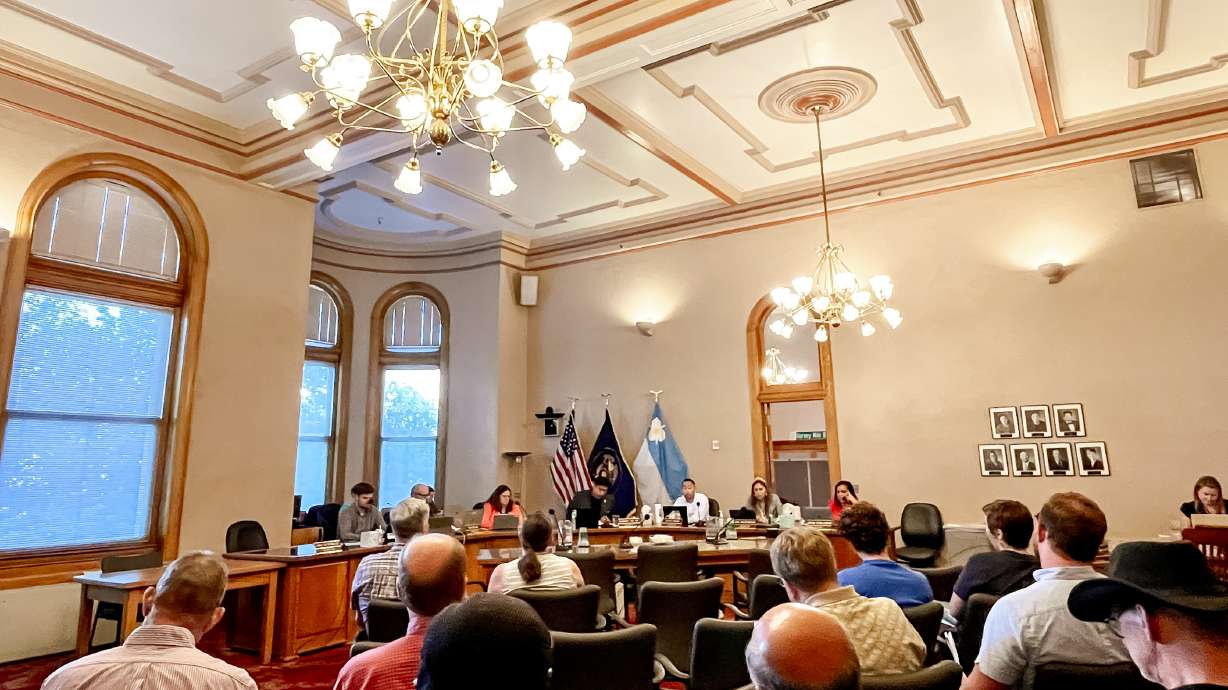Estimated read time: 4-5 minutes
This archived news story is available only for your personal, non-commercial use. Information in the story may be outdated or superseded by additional information. Reading or replaying the story in its archived form does not constitute a republication of the story.
SALT LAKE CITY — Residents of Utah's capital city will have the final say over a proposed $85 million general obligation bond to improve parks; however, the Salt Lake City Council is not ready to make a decision regarding unrelated property tax increases.
Members of the Salt Lake City Council voted unanimously to place the general obligation bond on the November ballot. If approved by voters, it will generate new funds to cover upgrades to several parks across the city, including $27 million toward the Glendale Regional Park at the site of the Raging Waters complex. Allen Park, the Fleet Block project and other park spaces across all districts would also receive funding for improvements.
The bond would be paid off through an increase in property taxes beginning in 2024. While the council did not provide an update on the cost for Salt Lake City homeowners, the initial $80 million proposal estimated it would raise the tax by $31 for the median-priced home.
The council also approved a $67.5 million sales tax revenue bond, which will cover improvements to various city facilities and historic spaces like the Fisher Mansion, Warm Springs Plunge, the Salt Lake City Cemetery and Pioneer Park, as well as improvements to radio towers and 600 North.
This bond, unlike the general obligation bond, will not be on the ballot and the council can choose to implement it at any time. The council uses money from sales taxes and property taxes to pay off the bond.
The council didn't, however, make a decision regarding a proposed property tax increase unrelated to either bond. This prompted a mandatory truth in taxation meeting Tuesday evening.
The city is seeking a 4.9% property tax increase, something that Salt Lake City Mayor Erin Mendenhall proposed earlier this year to help cover ongoing city services/expenses, library staffing/expenses and legal coverage — all of which has gone up due to higher demand.
City residents were split on the matter during the public comment session. Dave Alderman, the president the volunteer group Friends of the Salt Lake City Cemetery, said he is supportive of the city budget and the proposed bonds, especially with new funds directed at improving the aging roads at the cemetery.
"Keeping our taxes low does put a burden on the parks we all enjoy," he said, explaining one downside to lower taxes.
But others didn't see it that way, saying it may pose a burden for renters and homeowners alike. John Gardner, a Salt Lake real estate developer with three apartment complexes in the city, said he was "shocked" to find that his three properties would be facing a nearly $85,000 property tax increase.
He called it terrible timing because businesses are also fighting valuation increases.
"This is an enormous burden for business," he said. "It's incomprehensible that a city and a county would impose this kind of increase in one year. ... I guess the really sad part of this is that I have no choice but to pass this onto our renters. We care about our renters, we try to keep our rents reasonable (but) there's a limit to what we can do."
Matthew Crandall also spoke out against more property taxes, saying the growing cost of living in the city has displaced so many who used to live in his Sugar House neighborhood.
"I don't recognize my neighborhood anymore. ... And I'm facing the dilemma of having to move because this proposed tax hike now makes my property taxes the equivalent to just more than two of my mortgage payments," he said. "That may not mean anything to you guys, but it means a lot to me, and it is very difficult for people like us who can't just go to our neighbors and say, 'Hey, give me more money. Unfortunately, I have to budget my money — unlike the city."
Utah's capital city is among the dozens of entities seeking property tax increases this year, according to the Utah Taxpayers Association. Inflation, new demands following the COVID-19 pandemic and salary increases are considered the top reasons entities are seeking increases, association leaders said.
The Salt Lake City Council agreed to continue the property tax discussion during a meeting scheduled for 6 p.m. on Aug. 29, which is when it's slated to be decided on. The nondecision Tuesday was expected as the point of the meeting was to collect feedback from residents.









